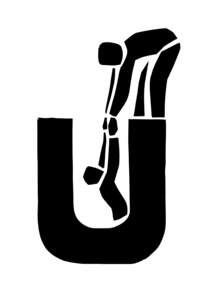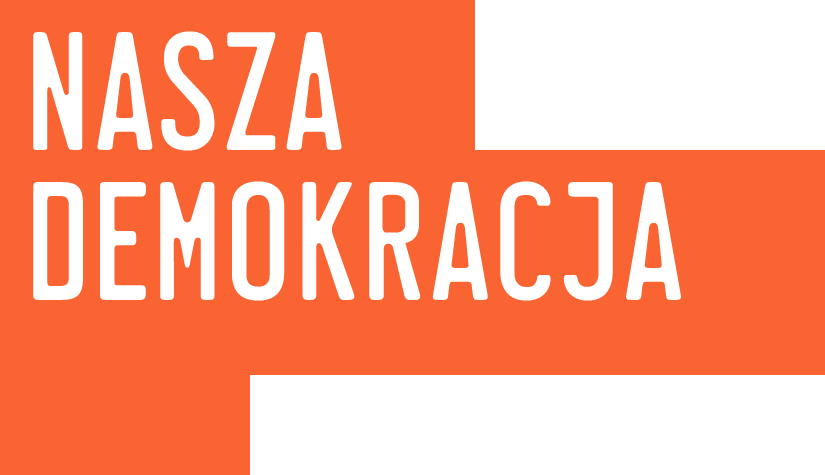Do: Dunja Mijatović, Council of Europe Commissioner for Human Rights
Human rights violations on Polish-Belarussian border
Ta kampania została zakończona.

There are dramatic and systemic human rights violations
concerning asylum seekers in the area adjacent to the Polish-Belarussian border, and government institutions are violating Polish and international laws. Refugees and migrants die on the border while Polish Border Guards do not let civil society organizations to provide medical help, shelter, food and water. On September 17, 2021, Danuta Kuroń in an open letter appealed to you to come to Poland. Why have you not answered? Why have you not reacted?
concerning asylum seekers in the area adjacent to the Polish-Belarussian border, and government institutions are violating Polish and international laws. Refugees and migrants die on the border while Polish Border Guards do not let civil society organizations to provide medical help, shelter, food and water. On September 17, 2021, Danuta Kuroń in an open letter appealed to you to come to Poland. Why have you not answered? Why have you not reacted?
Dlaczego ta sprawa jest ważna?
Please find the open letter from Danuta Kuroń to commissioner Dunja Mijatović attached below.
Dear Commissioner,
my name is Danuta Kuroń. I was a member of Polish democratic opposition in mid-1970s, an activist of the “Solidarność” trade union and a member of the “Solidarność” underground movement. Since 1989, I have been engaged in civic matters, mostly in the area of education. In recent years, I have been working with the Polish Youth Strike for Climate and Women’s Strike. Recent developments also made me involved with refugee aid organisations.
I would like to ask you to come to Poland.
The reason for my request is that there are dramatic and systemic human rights violations concerning asylum seekers in the area adjacent to the Polish-Belarussian border, and government institutions are violating Polish and international laws. I would like to draw your attention to two issues. Firstly, Polish services (including Border Guards) refuse to accept asylum applications from people who declare their intent to apply. Secondly, any migrant caught on the Polish side of the border is immediately transported to the border and subsequently forced to cross it illegally to Belarus. Those group expulsions are performed with physical violence and without starting any official procedures. Belarusian services on the other side of the border do the same, the only difference being a higher degree of brutality. We are talking about a situation where several dozen people (the exact number is impossible to estimate) have been strayed in the border zone for several weeks, chased off by representatives of both states and without any prospects for a solution of this situation. They have no food, no shelter, no access to medical care, while some are in poor state of health.
In addition, the state of emergency declared along the Polish-Belarussian border has prevented the operations of NGOs providing legal and humanitarian aid, but also made it impossible for free media to report on the situation. All this happens while the government-controlled media are either concealing the truth or reporting false information outright, in order to mislead the public. At present, there is no one at the border who can monitor Polish authorities’ compliance with the law.
Asylum seekers on the Polish side of the border fall victim to violence from the hands of Polish authorities, not only physically (brutal round-ups, destruction of phones, brutal expulsions), but also physiologically (as the term ‘physiological violence’ was defined by Johan Galtung, a Norwegian sociologist). A well-documented example of such treatment is the police and military blockade of 32 people near the village of Usnarz Górny at the Polish-Belarussian border. For nearly a month now, those people have been deprived of their freedom of movement, shelter, food, potable water and medical care. We do not know their current status as this area is subject to the state of emergency. Other examples of physiological violence used by Polish authorities include push backs to the swamps in the Białowieża Forest strict nature reserve.
The Polish Red Cross – the only institution with mandate to enter the state of emergency area with a humanitarian mission – makes its decision dependent on the consent of the Minister of Interior, who is the person responsible for institutional violations of human rights.
To sum up: we, Polish citizens, do not accept any human rights violations, but in confrontation with the state violence we are helpless and unable to help people who have an inalienable right to seek asylum and humanitarian aid. This is why I ask you to come to Poland to see the situation on the ground personally and form your own opinions. Should you decide that this is a job for the Council of Europe Commissioner for Human Rights, please help us find a solution where action can be taken to protect human right to life in a situation of conflict.
I invite you to the village of Teremiski, in Białowieża district near the Polish-Belarussian border, but outside the state of emergency zone. There you can meet men and women from Polish civic organisations (now forming a collective called “Grupa Granica” or “Border Group”) who provide first aid to asylum seekers found in the forest and – in reply to requests for asylum – contact lawyers and attempt to start legal procedures, and also with those who try to make the Polish Red Cross take action.
Great concepts such as human rights need civic movement, and this movement, in turn, needs the support from people of authority. Your help and support are urgently needed for those young people who fight for human rights on the Polish-Belarussian border as we speak. Also, I believe that contact with people who – apart from Polish intelligence services – have the best knowledge of the situation at the Schengen zone’s eastern border may be valuable to you. The problem we are facing there is not going to end soon.
Please, come and meet them.
With kindest regards,
Danuta Kuroń
Dear Commissioner,
my name is Danuta Kuroń. I was a member of Polish democratic opposition in mid-1970s, an activist of the “Solidarność” trade union and a member of the “Solidarność” underground movement. Since 1989, I have been engaged in civic matters, mostly in the area of education. In recent years, I have been working with the Polish Youth Strike for Climate and Women’s Strike. Recent developments also made me involved with refugee aid organisations.
I would like to ask you to come to Poland.
The reason for my request is that there are dramatic and systemic human rights violations concerning asylum seekers in the area adjacent to the Polish-Belarussian border, and government institutions are violating Polish and international laws. I would like to draw your attention to two issues. Firstly, Polish services (including Border Guards) refuse to accept asylum applications from people who declare their intent to apply. Secondly, any migrant caught on the Polish side of the border is immediately transported to the border and subsequently forced to cross it illegally to Belarus. Those group expulsions are performed with physical violence and without starting any official procedures. Belarusian services on the other side of the border do the same, the only difference being a higher degree of brutality. We are talking about a situation where several dozen people (the exact number is impossible to estimate) have been strayed in the border zone for several weeks, chased off by representatives of both states and without any prospects for a solution of this situation. They have no food, no shelter, no access to medical care, while some are in poor state of health.
In addition, the state of emergency declared along the Polish-Belarussian border has prevented the operations of NGOs providing legal and humanitarian aid, but also made it impossible for free media to report on the situation. All this happens while the government-controlled media are either concealing the truth or reporting false information outright, in order to mislead the public. At present, there is no one at the border who can monitor Polish authorities’ compliance with the law.
Asylum seekers on the Polish side of the border fall victim to violence from the hands of Polish authorities, not only physically (brutal round-ups, destruction of phones, brutal expulsions), but also physiologically (as the term ‘physiological violence’ was defined by Johan Galtung, a Norwegian sociologist). A well-documented example of such treatment is the police and military blockade of 32 people near the village of Usnarz Górny at the Polish-Belarussian border. For nearly a month now, those people have been deprived of their freedom of movement, shelter, food, potable water and medical care. We do not know their current status as this area is subject to the state of emergency. Other examples of physiological violence used by Polish authorities include push backs to the swamps in the Białowieża Forest strict nature reserve.
The Polish Red Cross – the only institution with mandate to enter the state of emergency area with a humanitarian mission – makes its decision dependent on the consent of the Minister of Interior, who is the person responsible for institutional violations of human rights.
To sum up: we, Polish citizens, do not accept any human rights violations, but in confrontation with the state violence we are helpless and unable to help people who have an inalienable right to seek asylum and humanitarian aid. This is why I ask you to come to Poland to see the situation on the ground personally and form your own opinions. Should you decide that this is a job for the Council of Europe Commissioner for Human Rights, please help us find a solution where action can be taken to protect human right to life in a situation of conflict.
I invite you to the village of Teremiski, in Białowieża district near the Polish-Belarussian border, but outside the state of emergency zone. There you can meet men and women from Polish civic organisations (now forming a collective called “Grupa Granica” or “Border Group”) who provide first aid to asylum seekers found in the forest and – in reply to requests for asylum – contact lawyers and attempt to start legal procedures, and also with those who try to make the Polish Red Cross take action.
Great concepts such as human rights need civic movement, and this movement, in turn, needs the support from people of authority. Your help and support are urgently needed for those young people who fight for human rights on the Polish-Belarussian border as we speak. Also, I believe that contact with people who – apart from Polish intelligence services – have the best knowledge of the situation at the Schengen zone’s eastern border may be valuable to you. The problem we are facing there is not going to end soon.
Please, come and meet them.
With kindest regards,
Danuta Kuroń
